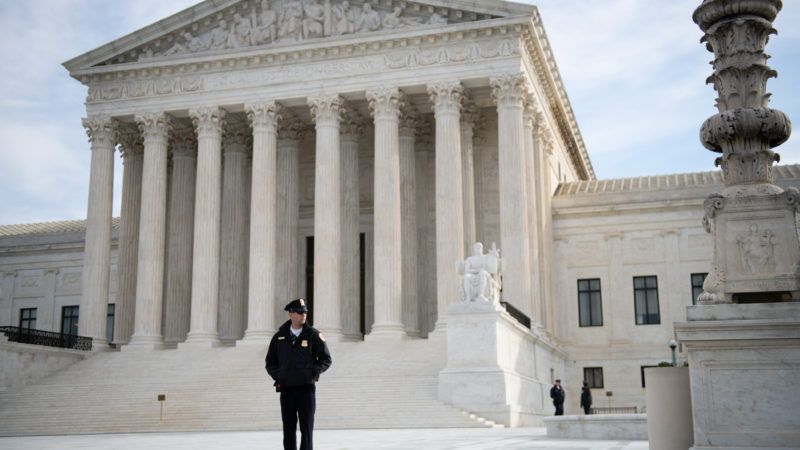Supreme Court Postpones Oral Arguments Over COVID-19, Some Justices Will Work From Home
The coronavirus upends business as usual at SCOTUS.

The COVID-19 pandemic has upended business as usual in the federal judiciary. This week the U.S. Supreme Court announced that it was postponing all oral arguments scheduled for late March and early April. That segment of the Court's docket includes some potentially blockbuster cases. Most notably, oral arguments had been scheduled for March 31 in Trump v. Mazars, the constitutional showdown over whether the House of Representatives may subpoena President Donald Trump's financial records. According to the Court, it "will examine the options for rescheduling those cases in due course in light of the developing circumstances."
Meanwhile, the justices are joining millions of other Americans in adjusting to the strange new realities of social distancing and working from home. The justices are still planning to hold their private conference on March 20, where they will discuss the outcomes of argued cases and decide whether to grant new petitions for review, though "some Justices may participate remotely by telephone," according to the Court. Given the advanced age and health histories of several of the justices, teleconferencing seems like a very prudent idea.
CNN legal analyst Joan Biskupic wonders if the COVID-19 crisis will prompt the "tech-averse" members of the Court to "open their operations in more modern ways." As she notes, "the justices for years have refused to televise hearings, livestream the audio from sessions, or even provide recordings of oral arguments the same day they are held. The Supreme Court of Canada, meanwhile, has been webcasting its proceedings for more than a decade, some lower U.S. courts livestream audio of arguments, and many U.S. state courts allow live TV coverage."
I don't think we'll see too many radical changes at SCOTUS just yet. The justices appear to be in a wait-and-see mode for the time being. And as the Court's official statement points out, "postponement of argument sessions in light of public health concerns is not unprecedented. The Court postponed scheduled arguments for October 1918 in response to the Spanish flu epidemic."
